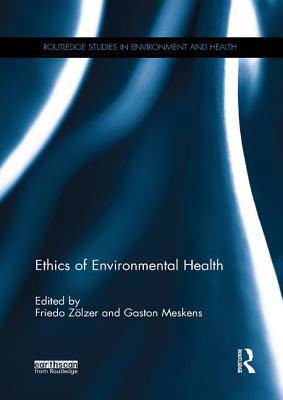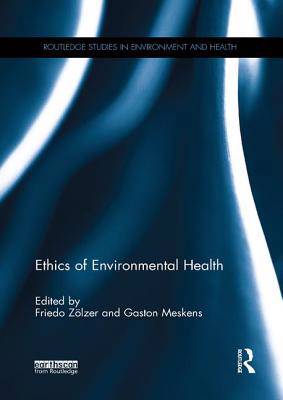
- Afhalen na 1 uur in een winkel met voorraad
- Gratis thuislevering in België vanaf € 30
- Ruim aanbod met 7 miljoen producten
- Afhalen na 1 uur in een winkel met voorraad
- Gratis thuislevering in België vanaf € 30
- Ruim aanbod met 7 miljoen producten
Ethics of Environmental Health
Omschrijving
Environmental health encompasses the assessment and control of those environmental factors that can potentially affect human health, such as radiation, toxic chemicals and other hazardous agents. It is often assumed that the assessment part is just a matter of scientific research, and the control part a matter of implementing standards which unambiguously follow from that research. But it is less commonly understood that environmental health also requires addressing questions of an ethical nature.
How can we determine the "acceptable" risk level for the general population or for certain groups? How should we deal with uneven distributions of risks and benefits? How do we communicate about risks with the stakeholders? This multidisciplinary collection brings together a number of leading researchers and scholars in order to generate discussion surrounding these key questions, and to bring the ethical implications of science and technology to the forefront of critical thought.
Providing a broad overview of the Ethics of Environmental Health, its philosophical foundations and practical applications, this book offers a significant contribution to ongoing discussions in sustainable development and will be of interest to scholars and practitioners of Environmental Health, urban studies and healthcare.
Specificaties
Betrokkenen
- Uitgeverij:
Inhoud
- Aantal bladzijden:
- 182
- Taal:
- Engels
- Reeks:
Eigenschappen
- Productcode (EAN):
- 9780367152260
- Verschijningsdatum:
- 17/01/2019
- Uitvoering:
- Paperback
- Formaat:
- Trade paperback (VS)
- Afmetingen:
- 174 mm x 246 mm
- Gewicht:
- 335 g

Alleen bij Standaard Boekhandel
Beoordelingen
We publiceren alleen reviews die voldoen aan de voorwaarden voor reviews. Bekijk onze voorwaarden voor reviews.










